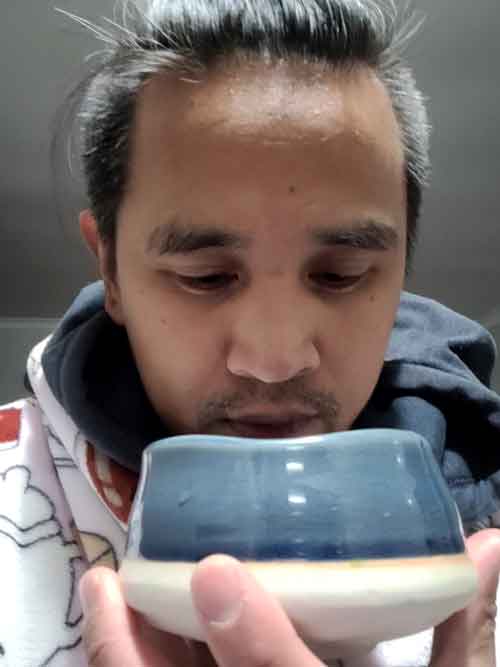Hey, green tea enthusiasts! Let’s talk about matcha, that vibrant green powder that’s taken the world by storm. Not only is it popping up in cafes and kitchens everywhere, but its popularity is soaring through the roof. And why not? It’s delicious, versatile, and comes with a whole host of potential health benefits.
Now, let’s dive a bit deeper and chat about something that’s on a lot of our minds: mental health. Specifically, we’re going to explore the intriguing world of “matcha and anxiety.” Can this ancient green tea powder actually play a role in managing anxiety? It’s a hot topic and definitely worth a natter.
To back up our chit-chat with some solid info, we’re pulling insights from a fantastic study titled “The therapeutic potential of matcha tea: A critical review on human and animal studies.” This research is like the Sherlock Holmes of matcha studies, diving deep into the nitty-gritty of how this green wonder might impact our noggin.
So, grab your favorite mug, make yourself a cozy cup of matcha, and let’s unravel the mysteries of matcha and anxiety together.
Overview of the Study
Alright, let’s take a closer look at this gem of a research paper that’s been stirring up quite the buzz in the matcha world. The study, titled “The therapeutic potential of matcha tea: A critical review on human and animal studies,” is pretty much the matcha manifesto when it comes to understanding how this green goodness interacts with our bodies and minds.
Now, the paper is packed with all sorts of juicy details, but for our little chat today, we’re zoning in on a section that’s as rich as a freshly whisked bowl of matcha. I’m talking about “3.1.1. Matcha tea and cognitive function: human studies.” Trust me, it’s like hitting the jackpot for anyone curious about matcha and anxiety.
This particular part of the paper dives deep into how matcha might just be playing a role in keeping our brains sharp and our anxiety levels in check. It’s like having a backstage pass to the latest and greatest in matcha research, and let me tell you, it’s some pretty fascinating stuff.
So, buckle up, because we’re about to embark on a journey through the ups, downs, and all-around awesomeness of what matcha might be doing for our mental health. Spoiler alert: it’s more than just a pretty green color!
Matcha’s Effect on Cognitive Functions and Stress
Okay, let’s dive into the nitty-gritty of what Baba et al. (2021b) discovered about our beloved matcha. This study isn’t just sipping tea; it’s spilling it on how daily matcha intake might just be the brain’s new best friend.
Participants in the study were downing 2.07g of matcha every day, and let me tell you, their brains were loving it. We’re talking about a noticeable drop in reaction time and a boost in picking up on emotions. Yep, matcha turned them into emotion-detecting ninjas!
Now, before we start thinking matcha is the cure-all for everything, let’s pump the brakes a bit. The study showed that matcha didn’t really move the needle when it came to fatigue, concentration, thinking ability, or energy levels. So, it’s not like drinking matcha will suddenly turn you into Einstein or give you the energy of a toddler on a sugar high.
But hey, the fact that it could help our brains process things faster and read emotions like a book? That’s pretty darn cool if you ask me. So, here’s to matcha, our new favorite brain-boosting beverage! Cheers!
Comparison between Matcha and Caffeine
Alright, let’s talk about the epic showdown: matcha versus caffeine. Baba et al. (2021a) didn’t just stop at studying matcha; they threw caffeine into the ring to see who’d come out on top in the battle of the brain boosters.
So here’s the lowdown: when it comes to the short-term, caffeine is like that friend who shows up, throws a great party, and then crashes hard. It’ll give you a quick boost in attention and have you reacting like a cat chasing a laser pointer. But, and it’s a big but, that’s where the party stops.
Now, enter matcha, the steady, reliable buddy. It might not throw a wild party in your brain right away, but give it time, and it’ll show you the good stuff. We’re talking about a solid performance under stress and a knack for keeping your attention sharp over the long haul.
So, while caffeine is all about the here and now, matcha is playing the long game. It’s like the tortoise and the hare, my friends. And in this case, slow and steady matcha wins the race.
So, if you’re looking for a quick pick-me-up, sure, grab a coffee. But if you’re in it for the long haul, matcha’s got your back. Cheers to the green wonder for keeping our brains sharp and our attention on point!
Related:
The Impact of Matcha on Anxiety and Physiological Stress
Alright, let’s chat about something we all care about: keeping those anxiety levels in check. Unno et al. (2018) decided to put matcha to the test and see if it’s really the calm-in-a-cup we’ve all been hoping for. Spoiler alert: it kind of is!
So, here’s the scoop. They had a bunch of students drink 3g of matcha daily for 15 days. That’s like having a mini matcha party every day! And the results? Pretty impressive, if you ask me. These students reported a significant drop in anxiety levels. We’re talking less nail-biting and more chill vibes.
But wait, there’s more! They didn’t just stop at asking the students how they felt. Oh no, they went full science mode and checked their salivary amylase levels, a fancy way of measuring physiological stress. And guess what? Those levels dropped too. So, it’s not just in their heads; their bodies were feeling the matcha chill as well.
So, hats off to matcha for being the cool, calming presence we all need in our lives. Whether you’re stressing over a deadline or just trying to keep your cool in the chaos of life, a little matcha might just be the zen you’re looking for. Cheers to less stress and more serenity!
Special Focus on Elderly Cognitive Functions
Alright, let’s take a moment to focus on the golden years. Sakurai et al. (2020) took a deep dive into how matcha might be playing a role in keeping the brains of our elderly folks sharp and snappy.
They gathered a group of clinically normal elderly people and had them sip on 3g of matcha in a drink daily for a whole 12 weeks. That’s like a matcha marathon! Now, here’s where things get interesting. The women in the group, they started showing some real brain power, particularly in the language department.
Now, before the guys start feeling left out, it’s important to note that there were only 15 male participants compared to a larger number of females. So, it’s like trying to judge a baking contest with only a handful of cookies to taste. We need more cookies, I mean, participants, to really get the full picture.
The study also tossed vitamin K into the mix, suggesting that it might have a little something to do with the brain-boosting benefits, especially for those who were running low on it. But again, we need more data to really put that theory to the test.
So, while the ladies were rocking the language tests and vitamin K might be the unsung hero of brain health, the takeaway here is clear: we need more research, more participants, and maybe just more matcha all around. Here’s to hoping for more brain-boosting discoveries and a future full of sharp minds and quick wits!
International Perspective and Short-Term Effects
Alright, let’s take our matcha journey international and chat about what’s brewing in the Netherlands. Dietz et al. (2017) decided to throw their hat into the matcha research ring, conducting a randomized controlled trial to see how matcha fares on the world stage.
Participants got to enjoy a variety of test products, including matcha tea and a matcha tea bar, all to see what immediate effects this green wonder might have on cognitive performance. We’re talking attention, memory, the whole nine yards.
Now, here’s the thing. The results were a bit like a Dutch windmill—interesting, but not moving too fast. There was a slight breeze of improvement in attention and working memory, but don’t expect to drink matcha and suddenly ace a memory test.
And here’s the kicker: the study showed that EGCG, one of matcha’s magic components, actually takes a bit longer to reach its peak in the bloodstream. So, testing participants an hour after consumption? Maybe not the best timing.
So, while our Dutch friends gave us a peek into the short-term effects of matcha, it’s clear we’ve still got some homework to do. We need more studies, more sipping, and maybe just a bit more patience to truly understand how matcha works its magic in the short term.
So, here’s to the global quest for matcha knowledge and uncovering all the green goodness this tea has to offer, one sip at a time!
Conclusion
Alright, tea lovers, let’s wrap this up with a nice little bow, shall we? We’ve sipped our way through some pretty interesting studies, diving deep into the world of matcha and its potential brain-boosting, stress-busting powers.
From the streets of Japan with Baba et al. to the canals of the Netherlands with Dietz et al., we’ve seen how matcha might just be the superhero in our tea cabinets. Whether it’s enhancing cognitive functions, speeding up our reaction times, or giving anxiety the boot, this green dynamo seems to have a lot up its leafy sleeves.
But, let’s not get ahead of ourselves. The studies, while promising, have their quirks and question marks. We’ve seen a whole lot of variability, from the amount of matcha consumed to the duration of the studies. And let’s not forget our elderly friends, who showed us that age and gender might play a role in how matcha works its magic.
So, what’s the tea? While matcha shows potential in being more than just a tasty beverage, we need more research, bigger groups of participants, and a bit more consistency in how we study this green wonder.
In the meantime, why not consider adding a cup of matcha to your daily routine? Who knows, it might just be the zen you need in your day. Just remember, as with all good things in life, enjoy in moderation.
So, here’s to matcha, to research, and to finding those little moments of calm in the chaos of life. Cheers!


